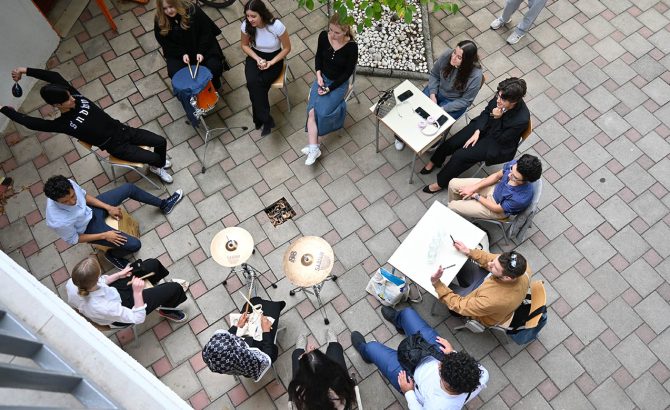International Baccalaureate
18.06.2025 2025-10-22 12:16International Baccalaureate

International Baccalaureate (IB)
What is the IB?
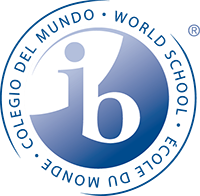
The International Baccalaureate Office (IBO) is a foundation based in Geneva. As an umbrella organization, it assesses and accepts schools into the IB programme. Every year, around 1.95 million young people at 5,900 schools worldwide study for the centrally-managed IB diploma.
The International Baccalaureate (IB) aims to develop inquiring, knowledgeable, and caring young people who help to create a better and more peaceful world through intercultural understanding and respect. The IB Diploma programme is administered by the International Baccalaureate Organization headquartered in Geneva, Switzerland. Offered by more than 4000 schools in nearly 150 countries, it is recognized for admission to universities in over 80 countries.
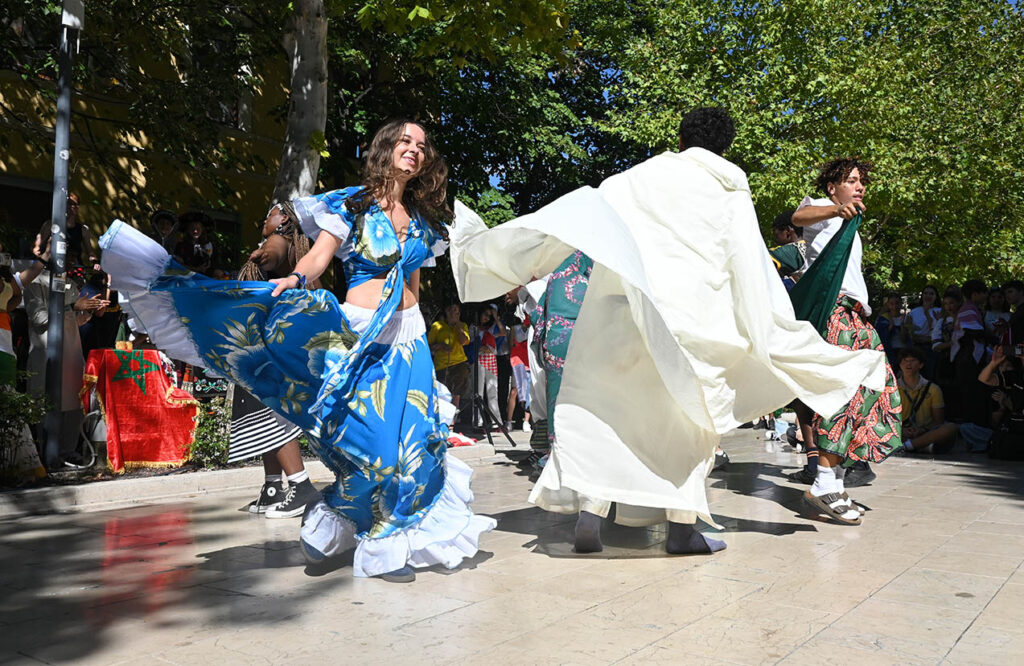
IB Curriculum & UWC Mostar
At UWC Mostar, education is built on the principle that we learn best when we learn together—and from each other.
Imagine a classroom where students from over 100 countries come together, bringing a diverse range of educational experiences, languages, and learning styles. Some arrive fluent in English, others with little or no prior exposure. Yet within this rich tapestry of diversity, something extraordinary happens: students begin to co-create a transformative educational journey.
Deliberate Diversity
Diversity at UWC Mostar is not incidental—it is intentional. Located in the heart of a city historically shaped by division, UWC Mostar embraces its heterogeneity as both a challenge and an opportunity. Our student body includes individuals from different parts of Bosnia and Herzegovina’s societal divides, as well as young people from every continent.
This diverse environment is not just a backdrop—it is the curriculum. While the International Baccalaureate (IB) Diploma Programme provides a rigorous academic foundation, the deeper learning at UWC Mostar occurs far beyond textbooks and timetables.
In dorm rooms and shared meals, in local community projects and difficult conversations, students engage deeply with each other’s perspectives. Every encounter becomes a learning opportunity—one that fosters empathy, resilience, and ethical reflection. Students are not passive recipients of knowledge; they are active agents in their own learning, and that of their peers.
A Transformative Model of Education
Guided by the values of UWC founder Kurt Hahn, our educational approach is designed to be transformative: intellectually, emotionally, and socially. Teachers and pedagogues at UWC Mostar do not view the diversity of student backgrounds as a barrier—but as a catalyst. They encourage students to take ownership of their learning process, embrace curiosity, and challenge assumptions.
This model of education turns the entire city of Mostar into a living classroom. Learning doesn’t end when the school day does—it continues on the streets, in volunteer projects, in dialogue with locals, and in reflection with friends from around the world. Students graduate not only with academic excellence but with a deepened sense of self and a commitment to building a more peaceful and just world.
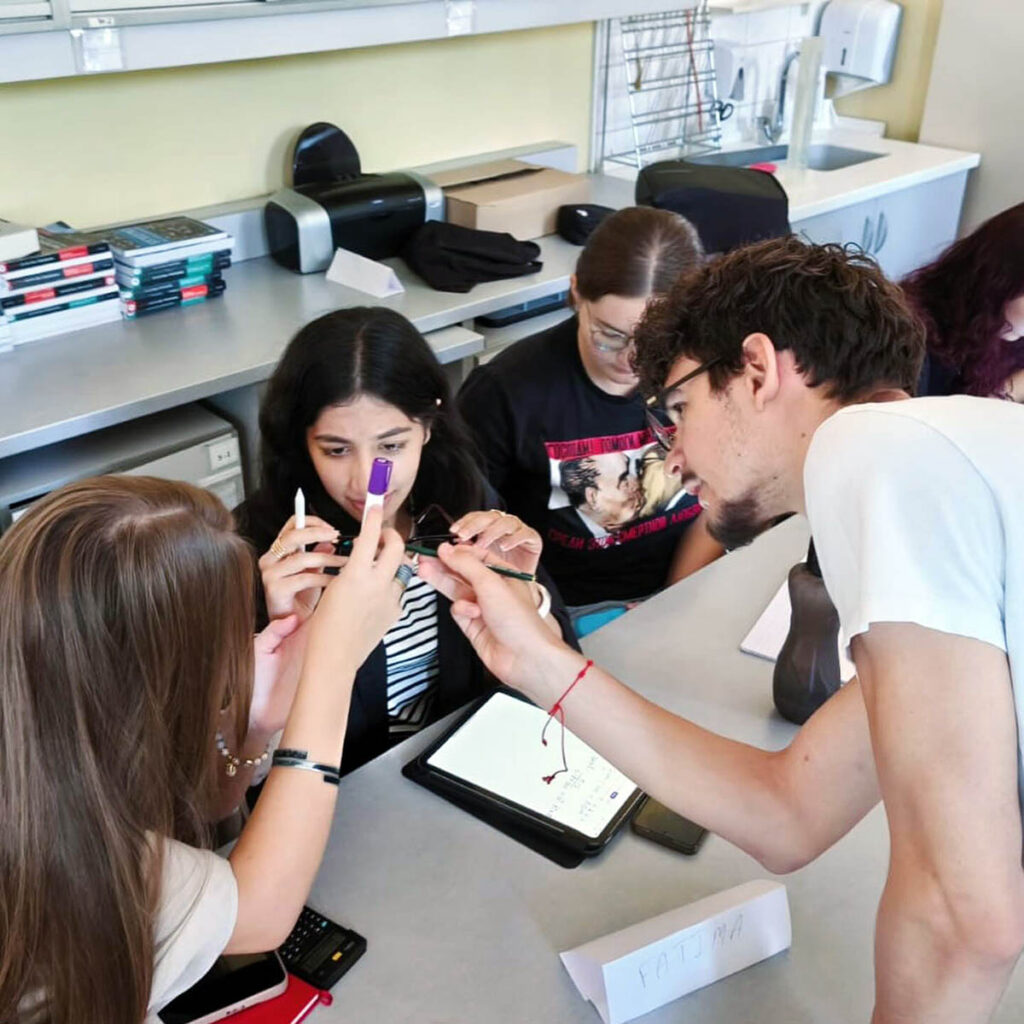
The International Baccalaureate at UWC Mostar
The IB Diploma Programme is at the heart of our academic curriculum. It is a globally respected qualification that aligns seamlessly with the UWC mission. As stated in the IB Mission Statement:
“The International Baccalaureate aims to develop inquiring, knowledgeable, and caring young people who help to create a better and more peaceful world through intercultural understanding and respect. To this end, the organization works with schools, governments, and international organizations to develop challenging programmes of international education and rigorous assessment. These programmes encourage students across the world to become active, compassionate and lifelong learners who understand that other people, with their differences, can also be right.”
The IB Learner Profile complements our holistic approach to education, encouraging students to become thinkers, communicators, principled leaders, and open-minded global citizens.
To learn more about the IB curriculum at UWC Mostar, including subject group offerings and the learner profile, visit our dedicated IB page!
What does studying at UWC Mostar look like?
Students study six subjects, three at a higher level (HL) and three at a standard level (SL). Students must choose one subject from each of the six IB subject groups, thus ensuring breadth of experience in languages, social studies, the experimental sciences and mathematics. The exceptions are: instead of group 6, the student may choose another subject from group 1-4 (a second foreign language, a second “humanities” option, or a second natural science). Instead of group 2 language, the student may choose an additional group 1 subject.
In addition, they write a term paper on a topic of their choice (extended essay), complete the Theory of Knowledge (TOK) course and complete at least 150 hours of extra-curricular activities in the areas of Creativity, Activity and Service (CAS).

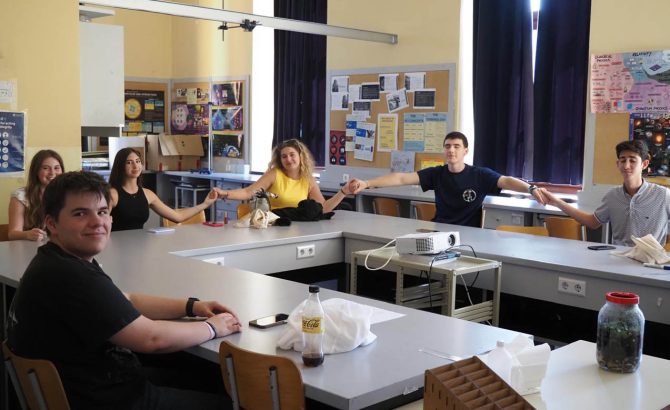
In Group 1, we offer the following subjects:
Croatian Literature
Serbian Literature
English Literature
English Language and Literature
School Supported Self Taught Language A
In group 2, we offer the following subjects:
German B
German ab initio
Spanish B
Spanish ab initio
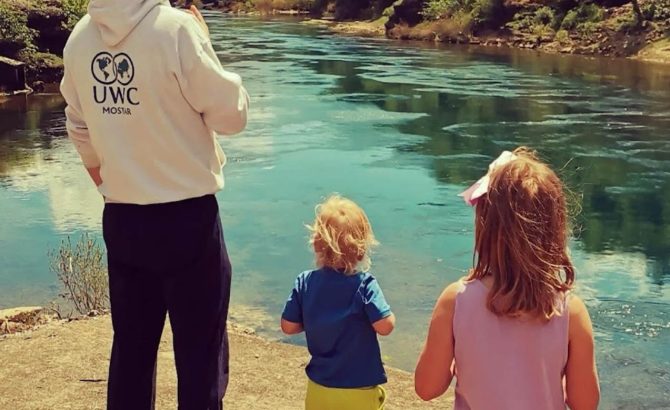
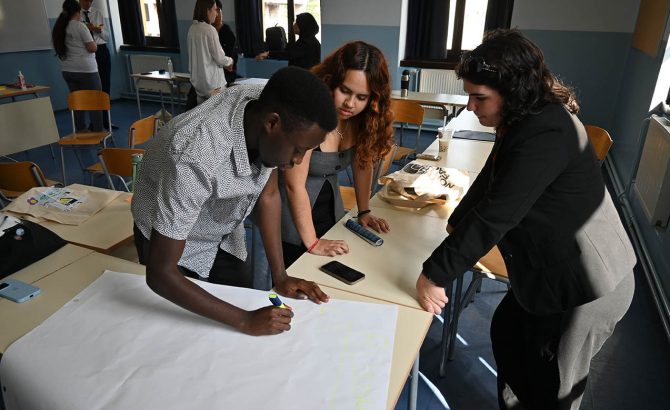
In Group 3, we offer the following subjects:
Economics
Environmental Systems and Societies (transdisciplinary with Group 4)
Global Politics
History
In group 4, we offer the following subjects:
Chemistry
Environmental Systems and Societies (transdisciplinary with Group 3)
Physics

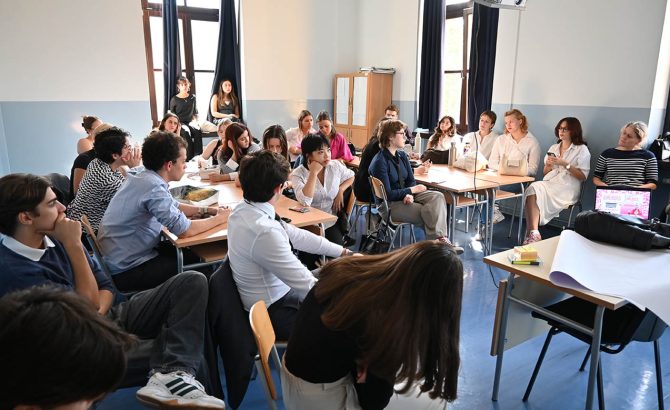
In Group 5, we offer the following subjects:
Mathematics: Applications and Interpretations (HL & SL)
Mathematics Analysis and Approaches HL
Mathematics Analysis and Approaches SL
Mathematics Applications and Interpretation SL
In group 6, we offer the following subjects:
Theater Arts
